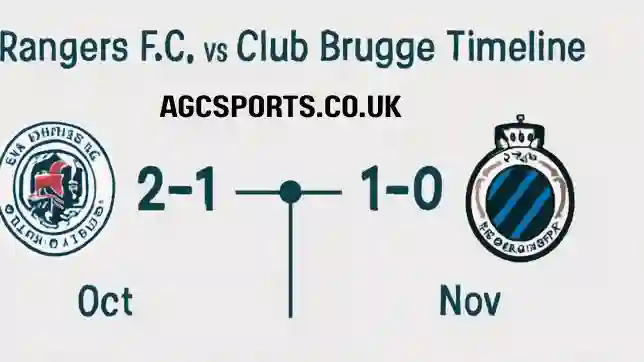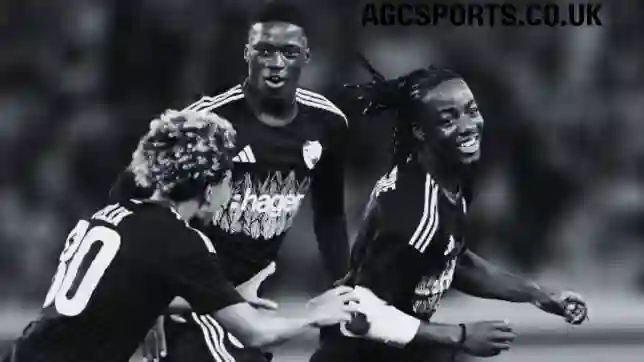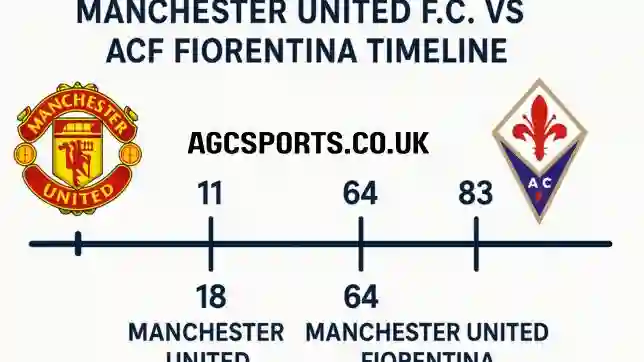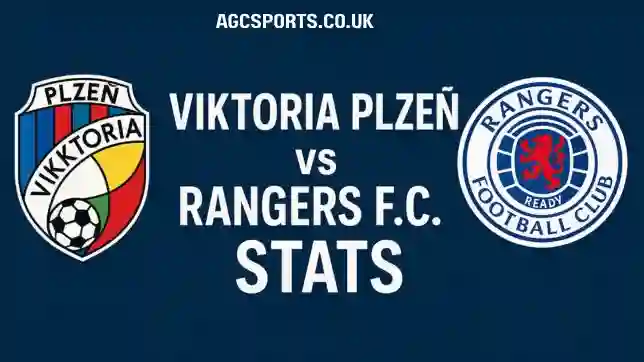
Rangers F.C. vs Club Brugge Timeline
Football rivalries often emerge from passion, geography, or chance. Some are born in the cauldron of domestic leagues; others, like the Rangers F.C. vs Club Brugge timeline, are written across decades of European nights filled with tension, resilience, and a clash of footballing cultures.
This isn’t just a chronicle of matches — it’s a study of identity, strategy, and evolution. The story of Rangers F.C. vs Club Brugge mirrors how football has changed from the raw intensity of the 1970s to the global spectacle we know today.
The Origins: A Clash Born in Europe (1970s)
The European Cup Foundations
The first notable spark in the Rangers F.C. vs Club Brugge timeline came in the 1970s, when both clubs were emerging as continental contenders. Rangers, Scotland’s powerhouse, were fresh from their 1972 European Cup Winners’ Cup triumph. Club Brugge, meanwhile, were beginning to establish themselves as Belgium’s most ambitious side under manager Ernst Happel.
Their paths crossed not because of shared borders but because of shared ambitions — to prove that smaller nations could stand tall against Europe’s elite.
The First Encounter: 1972–73 UEFA Cup
In the 1972–73 UEFA Cup, Rangers and Club Brugge faced off in what became an early classic. The first leg in Bruges was a battle of tactical wits — Brugge’s compact midfield pressing against Rangers’ physical, direct approach. The Belgians took a narrow lead, but the return leg at Ibrox was a spectacle.
Under the Glasgow lights, the atmosphere was electric. Rangers clawed their way back, forcing a draw on aggregate, but Brugge advanced on away goals — a bitter reminder that European football demanded more than passion. It demanded precision.
1980s: Changing Styles and Renewed Encounters
Football Evolves, So Do Rivals Rangers F.C. vs Club Brugge Timeline
The Rangers F.C. vs Club Brugge timeline took a new turn in the 1980s. European football was modernizing — tactics were more intricate, training more scientific, and television brought global eyes to every match.
When the two met again in the 1987–88 European Cup, it was more than a rematch; it was a showcase of evolving philosophies. Rangers, led by Graeme Souness, had begun importing English stars to dominate Scottish football. Club Brugge, disciplined and tactically efficient, embodied the analytical Belgian approach.
A Tale of Two Legs
The first leg in Belgium saw Brugge take control early with a structured 2–0 win, thanks to their precise counter-attacks. At Ibrox, Rangers fought back valiantly, but the Belgian defense held firm. Club Brugge advanced again — the Scottish media calling it a “masterclass in continental calm.”
These encounters etched a quiet rivalry built on respect rather than hatred. Rangers learned; Brugge evolved.
The Modern Era: Tactical Chess and Shared Ambitions
European Revival and Parallel Journeys
By the late 1990s and early 2000s, both Rangers and Club Brugge were trying to reclaim European relevance amid growing financial inequality. The Rangers F.C. vs Club Brugge timeline here becomes symbolic — both clubs representing proud traditions in leagues often overshadowed by wealthier neighbors.
In the 2002–03 Champions League group stage, the two met again. Rangers, managed by Alex McLeish, faced a Brugge side known for its technical discipline and home advantage at the Jan Breydel Stadium.
The first leg ended 2–2 — a thrilling showcase of tactical maturity. Ronald de Boer’s vision for Rangers met Andrés Mendoza’s flair for Brugge. In the return leg at Ibrox, a 1–1 draw sealed mutual respect. Both sides failed to progress, but both left with reputations enhanced.
The rivalry had matured — less about winning, more about proving belonging on the continental stage.
Cultural Significance: Scotland Meets Belgium
The Rangers F.C. vs Club Brugge timeline is more than scores and stats. It’s about two footballing cultures that share surprising parallels.
-
Community Clubs: Both teams embody their cities. Rangers represent Glasgow’s working-class grit, while Brugge symbolizes West Flanders’ unity and discipline.
-
Resilience Over Wealth: Neither club could match the spending of Real Madrid or Manchester United. Their success came from structure, scouting, and spirit.
-
European Identity: Both used European football to assert identity — Rangers as Scotland’s ambassadors, Brugge as Belgium’s continental flagbearers.
Each encounter reflected this shared DNA — hard work, tactical adaptability, and emotional connection with fans.
Tactical Analysis: How the Styles Collide
When examining the Rangers F.C. vs Club Brugge timeline, one thing stands out — each era redefined how these teams approached the game.
1970s – Passion vs Precision
Rangers’ aggressive, fast-paced play met Brugge’s methodical organization. The Belgians’ ability to control tempo gave them the edge.
1980s – Physicality vs Structure
Under Souness, Rangers became physically dominant but struggled against Brugge’s defensive geometry — a style reminiscent of Dutch “total football” discipline.
2000s – Adaptation and Possession
By the new millennium, both clubs focused on ball retention and European tactics. The clashes turned from brute contests to chess matches.
Key Matches in the Rangers F.C. vs Club Brugge Timeline
| Year | Competition | Venue | Result | Notable Moments |
| 1972–73 | UEFA Cup | Jan Breydelstadion | Brugge 2–1 Rangers | Brugge’s tactical breakthrough |
| 1972–73 | UEFA Cup (2nd leg) | Ibrox Stadium | Rangers 2–1 Brugge | Rangers’ brave fight, Brugge advanced on away goals |
| 1987–88 | European Cup | Jan Breydelstadion | Brugge 2–0 Rangers | Belgian counter-attacking display |
| 2002–03 | Champions League | Jan Breydelstadion | Brugge 2–2 Rangers | End-to-end European football at its best |
| 2002–03 | Champions League (2nd leg) | Ibrox Stadium | Rangers 1–1 Brugge | Mutual respect cemented |
Legacy: What the Rivalry Taught Us
The Rangers F.C. vs Club Brugge timeline is a microcosm of European football’s evolution — from raw rivalry to mutual admiration. It teaches us that greatness isn’t always about silverware; sometimes, it’s about consistency, learning, and representing your roots on a global stage.
Both clubs remain symbols of national pride — proving that with vision and unity, tradition can still challenge wealth.
FAQs Rangers F.C. vs Club Brugge Timeline
Q1: How many times have Rangers F.C. and Club Brugge faced each other in European competitions?
A: They have met several times across UEFA tournaments, including the UEFA Cup and Champions League, most notably in 1972–73, 1987–88, and 2002–03.
Q2: Which team has the upper hand historically?
A: Club Brugge have slightly edged Rangers in overall results, particularly in early encounters, though matches have often been tightly contested.
Q3: What makes the Rangers F.C. vs Club Brugge timeline significant?
A: It captures decades of evolving tactics, resilience, and mutual respect between two proud European clubs.
Q4: Are there chances of future encounters?
A: With both clubs regularly competing in UEFA tournaments, another meeting in Europe is certainly possible — and eagerly anticipated by fans.
Conclusion: Beyond the Scores
The Rangers F.C. vs Club Brugge timeline is more than a record — it’s a living narrative of ambition, adaptation, and cultural pride. From the roaring terraces of Ibrox to the blue-and-black sea at Jan Breydel, this rivalry embodies everything beautiful about European football: respect, evolution, and identity.
As football continues to globalize, these timeless clashes remind us why we fell in love with the game in the first place — because history, like football, never truly ends.


